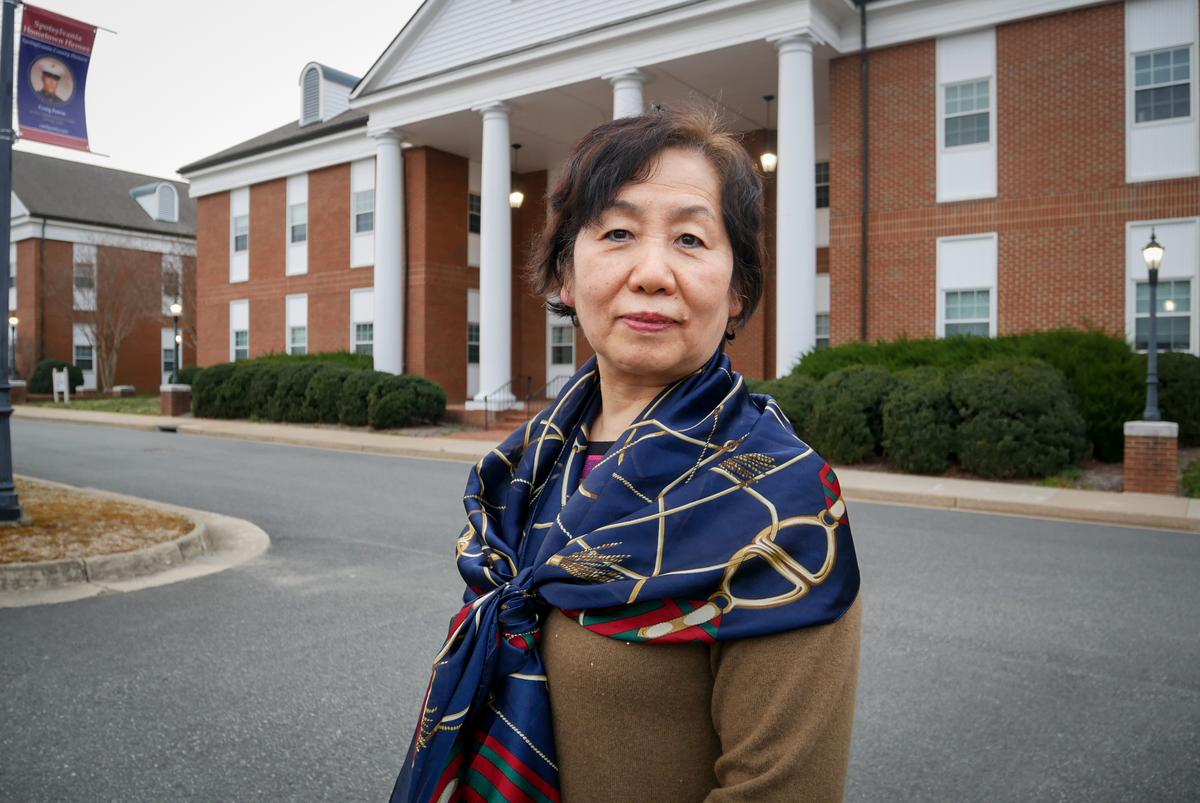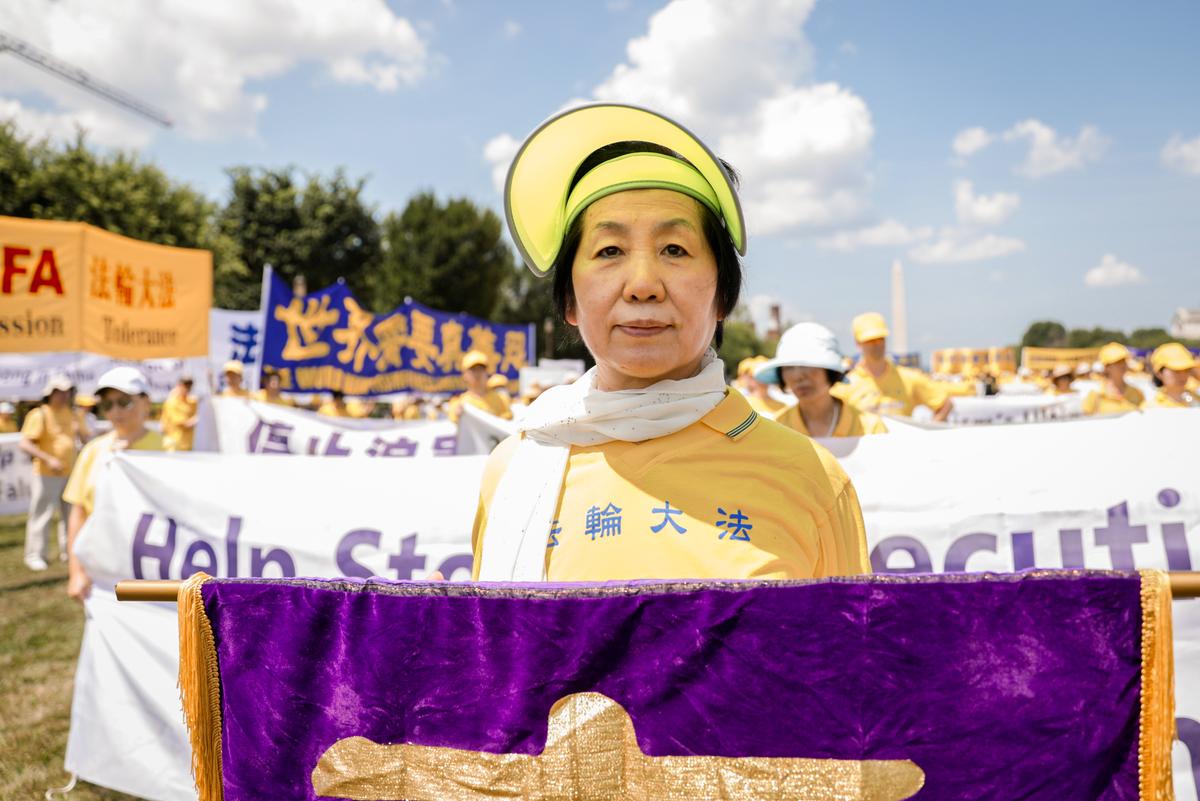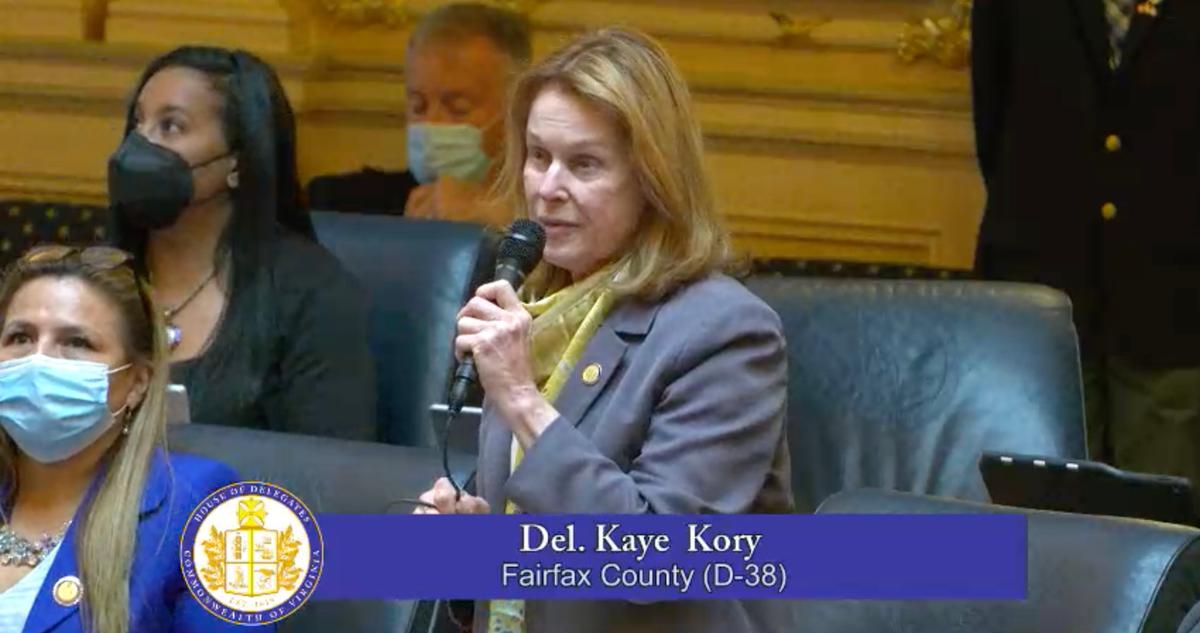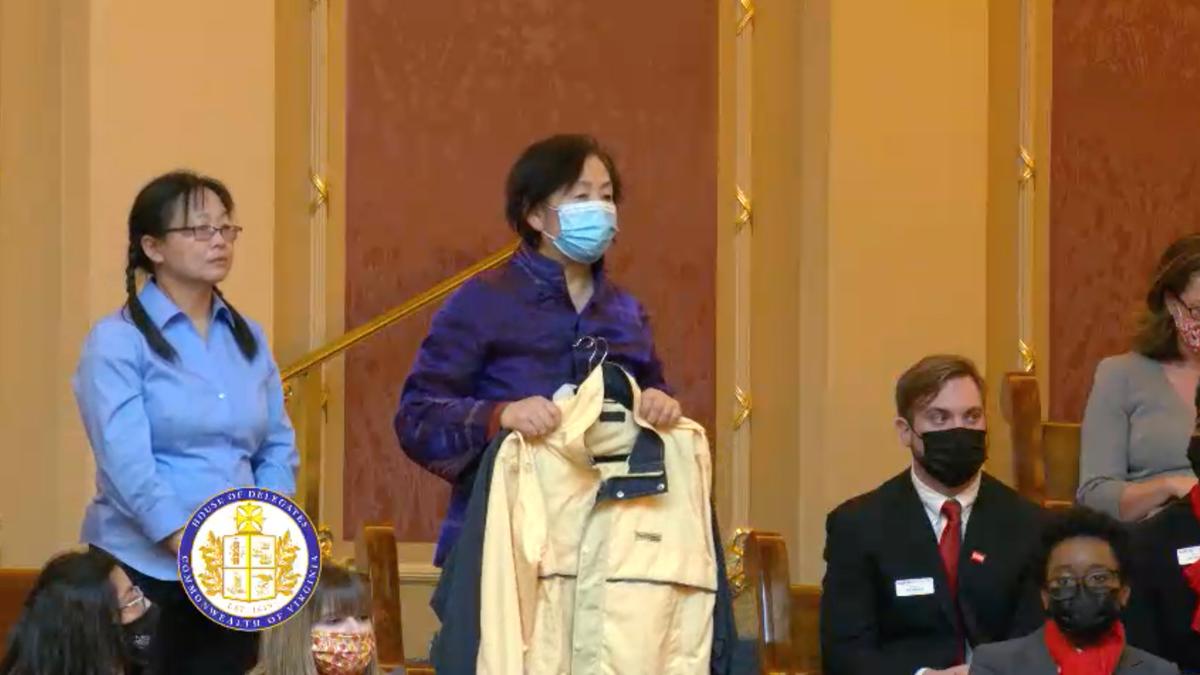FAIRFAX COUNTY, Va.—When the TV screen inside the Virginia General Assembly showed the vote of 82–0 on Feb. 11, Wang Chunyan, a 66-year-old Chinese refugee who just became a U.S. citizen a year ago, stood in silence.
“The House of Delegates strongly condemns the imprisonment, torture, slave labor, and state-sponsored forced organ harvesting used against Falun Gong practitioners in China and demands an immediate end to the persecution of Falun Gong by the Chinese Communist Party,” the resolution states.
“All Virginians stand in solidarity with Falun Gong practitioners in their pursuit of freedom of belief.”
Since then, millions of Falun Gong practitioners have been detained in prisons, labor camps, detention centers, and other facilities, where they have been subjected to torture, forced labor, and forced organ harvesting.

Before fleeing to the United States, Wang was one of the victims of the persecution.
“The unanimous passing [of the resolution] exceeded my expectations,” Wang told The Epoch Times.
“In the face of a brutal Chinese communist regime, 82 delegates said ‘no.’
Recollections
Despite it being a moment of triumph, the House votes also triggered some painful memories for Wang.An overwhelming moment from November 2020 flashed in her mind.
Due to her limited English, she often relied on her friends and fellow Falun Gong practitioners to speak about the CCP’s expansive suppression of the spiritual practice. At this meeting, her friend Tiny Tang informed the board members about various abuses suffered by practitioners at the hands of the communist regime.
As Tang spoke about how the persecution tore millions of Chinese families apart, Wang couldn’t help but think of her own husband, who died almost 20 years ago.
“It was like my almost-healed wounds were torn open again,” she said. Her world had been turned upside down when she lost her husband of 21 years.
In January 2002, 2 1/2 years into the regime’s persecution, Wang left home in an effort to evade local police who were bent on arresting her for persisting in her faith. As a result, Wang’s husband, Yu Yefu, who was not a practitioner, was often harassed by police looking to track down Wang.
One day, a policeman visited Yu at his workplace to find out Wang’s whereabouts. The officer hit Yu, who fought back. Before leaving, the policeman said he would take revenge.
Several days later, Yu’s body was found at home with the gas turned on. The official cause of death was determined to be gas poisoning, but the family suspected foul play given that he was found with a head wound. He was 49.
Traditionally in China, the eldest son occupies a special position in the family, bearing primary responsibility for the welfare of the parents and other family members. Yu was the eldest son and someone the entire family looked up to and relied on. Upon learning of his death, his 37-year-old younger sister suffered a heart attack and was hospitalized. Within weeks, his mother became paralyzed out of grief and remained in a wheelchair for the rest of her life. Unable to cope with the loss, his father killed himself a year later, saying, “I am joining my son.”
Ten days after her husband’s death, Wang was arrested.
Detention
Because she refused to renounce her faith, Wang was arrested and sentenced twice in China, spending a total of seven years in prison.While in detention, she suffered a range of torture aimed at forcing her to give up her belief. During the first month of imprisonment in the Dalian Detention Center in northeast China’s Liaoning Province in 2002, three prisoners took turns beating her with a three-foot-long club made with two iron rods of about one-inch diameter twisted together. The beating lasted for about three hours until she ran and hit her head against the wall in desperation. The torture session left her back soaked with blood.
At the detention center, Wang was forced to perform slave labor, producing toilet seat covers for eight months, then Christmas ornaments for the remaining four months at the facility.
Wang’s second year in detention was at the Liaoning Women’s Prison, where she was forced to make clothes destined for export to Europe. Slave labor days were long, from 6 a.m. to 9:30 p.m., seven days a week. Sometimes the detainees had to work even longer to meet production quotas.
Before her first arrest, Wang owned a successful sales business with an annual revenue of more than a million yuan (over $150,000). After she was released in 2004, she realized that she had lost a lot of friends. Her acquaintances would avoid eye contact if they bumped into her on the street. Her socioeconomic status dropped to the bottom of society.

Organ Harvesting
At the November 2020 Board of Supervisors meeting in Virginia’s Frederick County, Wang’s friend Tang turned to the subject of forced organ harvesting—a grisly state-sanctioned practice in which detained Falun Gong practitioners are killed for their organs for sale on the transplant market. A 2019 independent people’s tribunal found that organ harvesting had taken place for years on a substantial scale, and continues today.As her friend was speaking about the untold number of Falun Gong practitioners killed as a result of organ harvesting, Wang thought of the blood test she was given while in Liaoning Women’s Prison in January 2003.
At that 2020 meeting, these traumatic memories hit Wang in waves, and she tried her best to hold back her tears.
‘Second Home’
Coming to the United States felt like a second life for Wang.After serving her first two-year prison term, Wang was arrested again in August 2007 for raising awareness about the persecution in China. After her release five years later, she knew she had to leave China. By that time, more than 20 of her close friends had died due to the persecution. To avoid the same thing happening to her, Wang fled to Thailand in May 2013. On her first day of arrival, she applied for U.N. refugee status.
While she was waiting for her application to be processed in Thailand, Reps. Chris Smith (R-N.J.) and Gerry Connolly (D-Va.) wrote letters to the U.N. refugee program to help her, urging the program to fast-track her case.
Wang was resettled in the United States two years later.
“America is a second home to me,” said Wang, who now lives in Fairfax County in Virginia.
“I feel an obligation to return the favor to my fellow Americans, to inform them of the evil of the CCP so they won’t be fooled by it.”
Driven by her newfound mission, she traveled to more than 20 counties across the state in 2021. She would visit local officials in the mornings and go to shopping centers in the afternoons to collect signatures in support of the passing of resolutions condemning the persecution and state-sponsored forced organ harvesting.
“I need some support,” she would say as she reached out to strangers in shopping malls.
The 66-year-old would then show people print materials describing her story, or give people flyers about Beijing’s suppression. She used written materials since her English wasn’t advanced enough to adequately describe what she had gone through.
To Wang’s surprise, many people expressed their sympathy and signed right away to support a local resolution in support of Falun Gong. She said people welcomed her with open arms as a fellow Virginian. Backed by signatures from over 5,000 Virginia residents, over 20 local resolutions were passed in 2021.

Awareness
On Jan. 25, Wang experienced another warm welcome from her adopted home—this time by legislators in Virginia’s lower house.That day, Del. Kaye Kory (D-Fairfax) introduced Wang to all House delegates present during the regular session: “Chunyan Wang, a Falun Gong practitioner, who was imprisoned in China for seven years, tortured, and forced to labor making jackets to be sold in the U.S. and Europe.”
Kory was aware of the plight of Falun Gong practitioners in China before she heard Wang’s story. “Four years ago, I had an intern, a student from VCU [Virginia Commonwealth University], who was a Falun Gong member. He had escaped, and the rest of his family was still imprisoned and died while he was working for me,” she told The Epoch Times.

Del. John Avoli (R-Staunton), who sponsored the resolution, told The Epoch Times that he was proud of its unanimous passing and described the Chinese regime’s forced organ harvesting as “deplorable and needs to be addressed.”
Dr. Tatiana Denning, a family physician in Virginia and a health columnist for The Epoch Times, spoke to the House Rules Committee on Feb. 8 in support of the resolution.
She first heard of forced organ harvesting from two of her patients in 2017, a couple who practice Falun Gong. “Surely it can’t be that bad, or I would have heard about it in the news,” she thought at the time. She later researched the issue and concluded that organ harvesting was indeed happening, and occurring on a large scale.
“Can you imagine if, after the fact, you learned that someone else was probably killed so that you could have your organ?” she told The Epoch Times, referring to those who receive organ transplants in China.
“I don’t know how you could live with yourself. It would just be devastating.”
The House resolution urges Virginia residents and the medical community to be “fully informed” about the risks associated with transplant tourism to China, to prevent Americans from “unwittingly becoming accomplices” to Beijing’s state-sponsored organ harvesting from Falun Gong practitioners and other prisoners of conscience.
Denning underscored this point.
“For the sake of, not just the person that’s losing their life, but the person that has to live with what they’ve been a part of and what they’ve been complicit unknowingly with, I think it’s important to let Americans know.”




